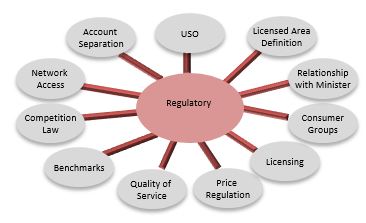Public Policy and Regulation
The definition of the universal service and the core aspects of regulation is central to long term strategic planning.

In addition all Posts need to engage in the debate around the trade offs between social obligations, commercial objectives and productivity and how these will create a sustainable regulatory environment which can deliver a postal service that is relevant to the times and the community.
We have significant experience in working on Postal regulation from multiple perspectives - Regulator, the USP, Competitors and Postal Consumer Bodies.
This has included working on regulatory strategy and response for Sweden Post ( Post Nord), An Post and New Zealand Post. Working on Postal legislation for the UK Industry Ministry, undertaking USO costing and pricing modeling and reviewing the impact of regulation for competitor business. In addition, we have worked at various times with Post Europe and the UPU on regulatory issues and questions.


